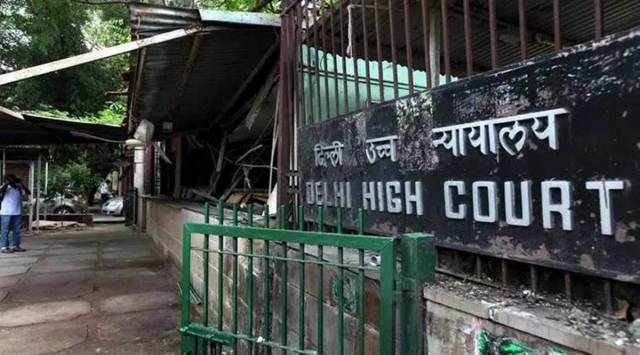‘Internet never forgets’: HC issues directions on spread of non-consensual intimate images
The HC said that if individuals have a “right to informational privacy”, it also contains within itself the “individual’s right to be forgotten which has been held to be the consequence of dignity of an individual and, thus, a facet of the right to privacy”.
 The court said that once information is received, Delhi Police must immediately register a formal complaint and bring perpetrators to book to prevent the repeated upload of unlawful content.
The court said that once information is received, Delhi Police must immediately register a formal complaint and bring perpetrators to book to prevent the repeated upload of unlawful content. The Delhi High Court Wednesday passed a slew of directions to social media intermediaries, Ministry of Electronics and Information Technology (MEITY), and Delhi Police to expeditiously handle cases of dissemination of “non-consensual intimate images” (NCII) on the internet.
A single-judge bench of Justice Subramonium Prasad, while passing the directions, observed that the “internet never forgets, and once such content is uploaded, it becomes exceptionally difficult to control its spread”.
The order was passed in a plea of a woman seeking blocking of certain sites carrying her intimate images and registration of an FIR against a man who she alleged had acquainted himself with her through social media. She said that the man allegedly took advantage of “absence of her family members, came over to her place and forced himself upon her”. He allegedly not only clicked explicit pictures of her, but also involved her minor son in sexual acts and, leaked her pictures on various pornographic sites.
The HC said that if individuals have a “right to informational privacy”, it also contains within itself the “individual’s right to be forgotten which has been held to be the consequence of dignity of an individual and, thus, a facet of the right to privacy”.
Justice Prasad observed that search engines play an important role in “dissemination of content and its powers in connecting said content to consumers is undeniable”. The court said, “It is unfathomable as to how a search engine can feign helplessness when it comes to removal of or disabling access to links which prima facie contain content that is illegal as declared by the court… An approach that entails the victim/user having to sift through the internet to identify and then share every URL hosting their NCII is unconscionable in the eyes of this court”.
The court noted that search engines and social media intermediaries have the ability, the capacity, and the legal obligation to disable access to offending content. This responsibility “cannot be brushed under the carpet on the ground that it (intermediaries) does not host content”, the court added. Among various directions issued, the HC said Grievance Officer appointed by the intermediary for receiving complaints must be “appropriately sensitised”. “The definition of NCII abuse must be interpreted liberally by intermediaries to include sexual content obtained without consent and in violation of an individual’s privacy as well as sexual content obtained and intended for a private and confidential relationship,” the court said.
The court said that once information is received, Delhi Police must immediately register a formal complaint and bring perpetrators to book to prevent the repeated upload of unlawful content. It said that every district cyber police station must have an assigned officer to liaise with intermediaries against which grievances have been raised by the victim and an endeavour should be made to ensure that grievance is resolved within time schedules stipulated under the IT Rules.







